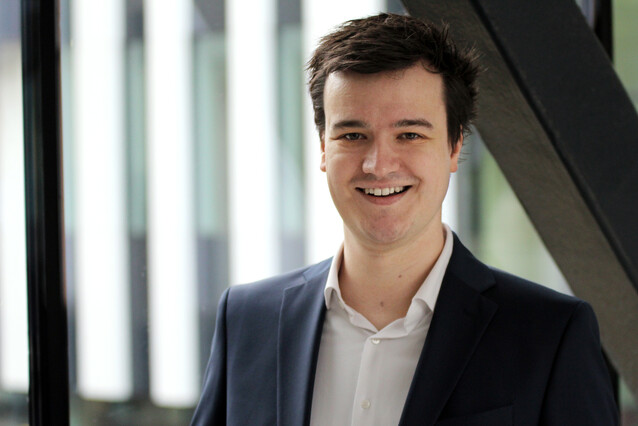Egon Macher Award for Lukas Leiendecker
Lukas Leiendecker’s doctoral research on certain types of skin cancer caused by a papilloma virus continues to attract honours, now rising to a true accolade: the German dermatological research association ADF will present this year’s Egon Macher Award.
Lukas Leiendecker, PhD student with Anna Obenauf, will receive the Egon Macher Award by the Arbeitsgemeinschaft Dermatologische Forschung (ADF). The announcement came only weeks after Leiendecker was presented with a research award by an Austrian scientific society, and alongside the notice of a research paper prize by the German society for virology. Leiendecker earned this accolade of honours with his research on digital papillary adenocarcinoma and other HPV-driven cancers, published in the journal Cancer Discovery in October 2022.
Viruses contribute to about one in ten human cancers. Human Papillomaviruses (HPV), for instance, are known to cause cervical and head-and-neck cancers. Whether these viruses are also involved in skin cancers was not known - until Lukas Leiendecker and his collaborators took a closer look at the genomes of rare skin cancers. They analysed more than 200 skin tumours and found that all Digital Papillary Adenocarcinoma tumour samples contained DNA sequences originating from HPV42, a virus so far thought to be harmless. The study subsequently described the molecular pathways triggered by HPV42 in Digital Papillary Adenocarcinoma.
Understanding the molecular basis of a patient’s cancer can be crucial for diagnosis and therapy – for instance, the distinction between virus-driven and mutation-driven cancers can determine how aggressive the treatment needs to be. After analysing the gene expression data in 11,000 cancer samples, the researchers pinpointed a molecular signature of HPV-driven cancers. With the expression data of only two genes, CDKN2A/p16 and SYCP2, HPV-driven cancers can be identified with high accuracy. This could have important implications for clinicians, cancer patients, and even future therapies that utilise those signature genes as targets.
“It is fantastic seeing the creativity and hard work that went into our project recognised repeatedly with now three awards,” says Lukas Leiendecker. “I am really grateful to the granting organisations, but also to my supervisor Anna Obenauf and the many international collaborators with whom I enjoyed working on this project.”
The Egon Macher Award was launched in 2003. It merits outstanding research in experimental dermatology conducted in Austria, Germany, or Switzerland. A prize of 7500 Euro, sponsored by AbbVie Germany, goes to up to two scientists.
Further reading
Oncogenic virus: Scientists show how HPV causes skin cancer
Genomics and artificial intelligence to empower cancer diagnostics
